Objectifs Film Club with Past Short Film Incubator Participants
As a lead up to the 2023 Objectifs Short Film Incubator, the second Objectifs Film Club session of the year featured three past Incubator participants: Jessica Heng (Singapore), Reza Fahri (Indonesia), and Trishtan Perez (Philippines). Focusing on the films that they had workshopped during the incubator programme – Breaking News, West Love, and i get so sad sometimes respectively – the three of them discussed their filmmaking journey since developing their scripts under the Incubator, as well as the process of shooting their films.
Click here to learn more about their aforementioned films.
The session was moderated by Leong Puiyee from Objectifs. This recap has been paraphrased and edited for brevity.
Puiyee: Thank you, Trishtan, Jessica, and Reza, for joining us. It’s really nice for us to be able to see how the three of you started developing your scripts at our Short Film Incubator, and then went through different individual processes to make your films. Tonight, we hope to hear from all of you about the script development process you underwent during the Incubator, as well as the steps you took to finally complete your film. To start off, perhaps the three of you could share more about the context behind the ideas in your film, and the need you felt to tell these stories.
Reza: The context for West Love, and my reason for making this film stems from the ongoings in this area in Yogyakarta, Indonesia, which was previously farmland, but has since been reclaimed by the government for the construction of an airport. The process has been really tough for the people of the area due to repression from the government and police concerning the matter. In addition, the government also made promises to the people that they could get new jobs at the airport after it was built. However, they later discovered that it was actually very difficult for them to get these jobs, so these just ended up being empty promises.
This was something that made me really angry, but because I do not come from that area myself, I thus tried to make a film which could voice my thoughts and opinions on the issue. In West Love, I thus portrayed a fictional couple from the region who have dreams of getting jobs at the new airport, but they end up not being able to get them.
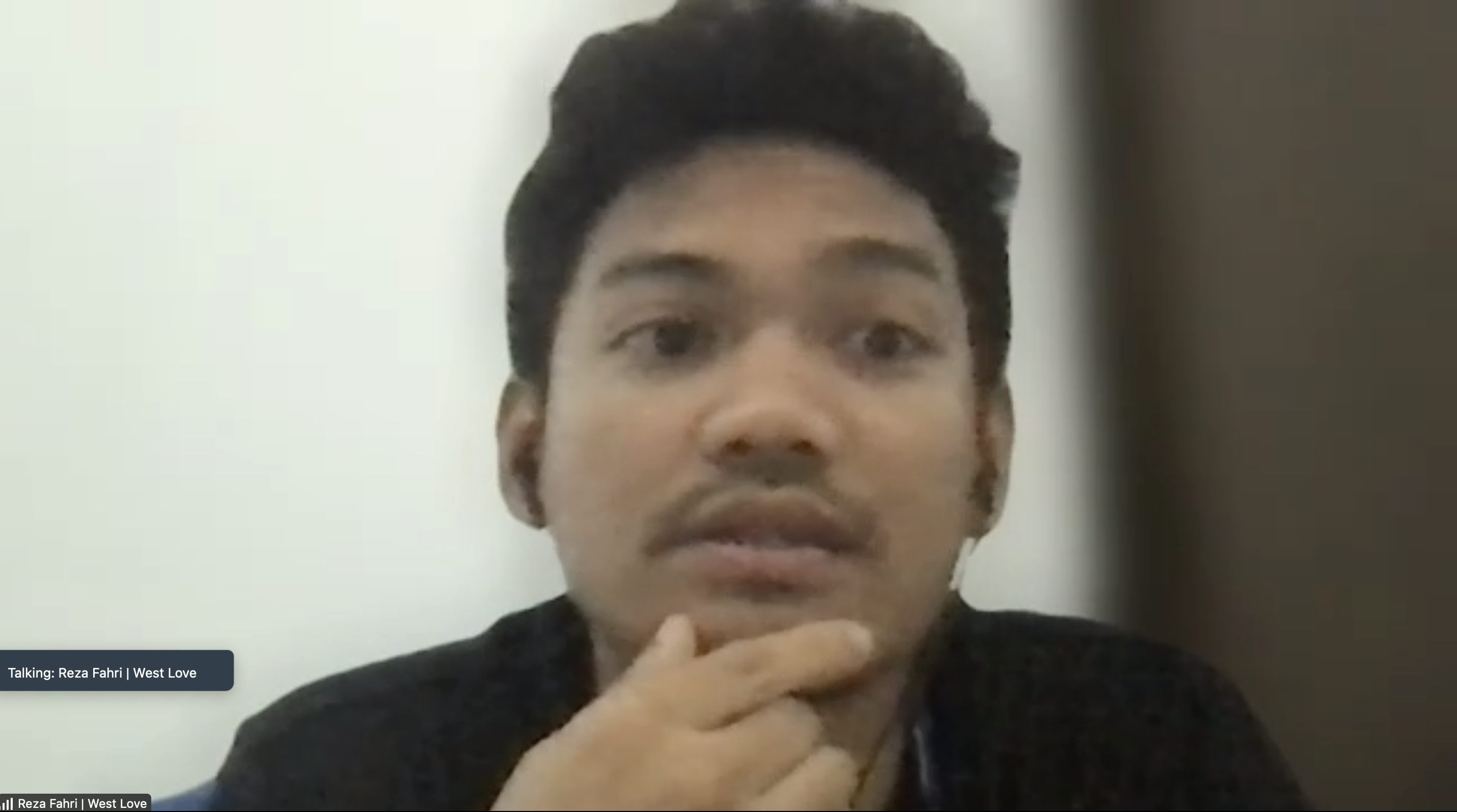
Jessica: Breaking News was an accidental film in a way. At the start of 2020, I was doing a series of micro-documentaries with women who were sharing their post-abortive experiences. After sitting through three of these sessions, with my interviewees pouring their hearts out to me, it was hard not to feel a sense of conviction about the issue. I realised that these women shared a common narrative – the isolating experience of an unexpected pregnancy, where they had to either go to the clinic alone, or they had no one to process their thoughts and feelings with after the abortion.
It made me think about their younger days [when they had their abortions], and what it would mean for someone younger who found themselves in this position, in that in-between moment before they made a decision of such a seismic nature that could change the course of their lives forever. That was when I first wanted to write a story based on a young girl who was going through such circumstances.
Abortion tends to be a polarising topic. There are usually two camps of people who are either strongly pro-life or pro-choice, and the issue is often discussed in very theoretical terms. [This is why] I think we sometimes forget about the actual human being at the centre of it all. And of course, not only young girls get abortions. But with the stage of life that I’m personally at now, I wanted to explore it from such a character’s point-of-view. I didn’t initially intend for it to be a full film. I think I was just interested in extending a narrative, not knowing if it was ever going to come to life. But then Objectifs presented me with the opportunity to do so [during the Incubator], and that was when I thought more seriously about the end product.
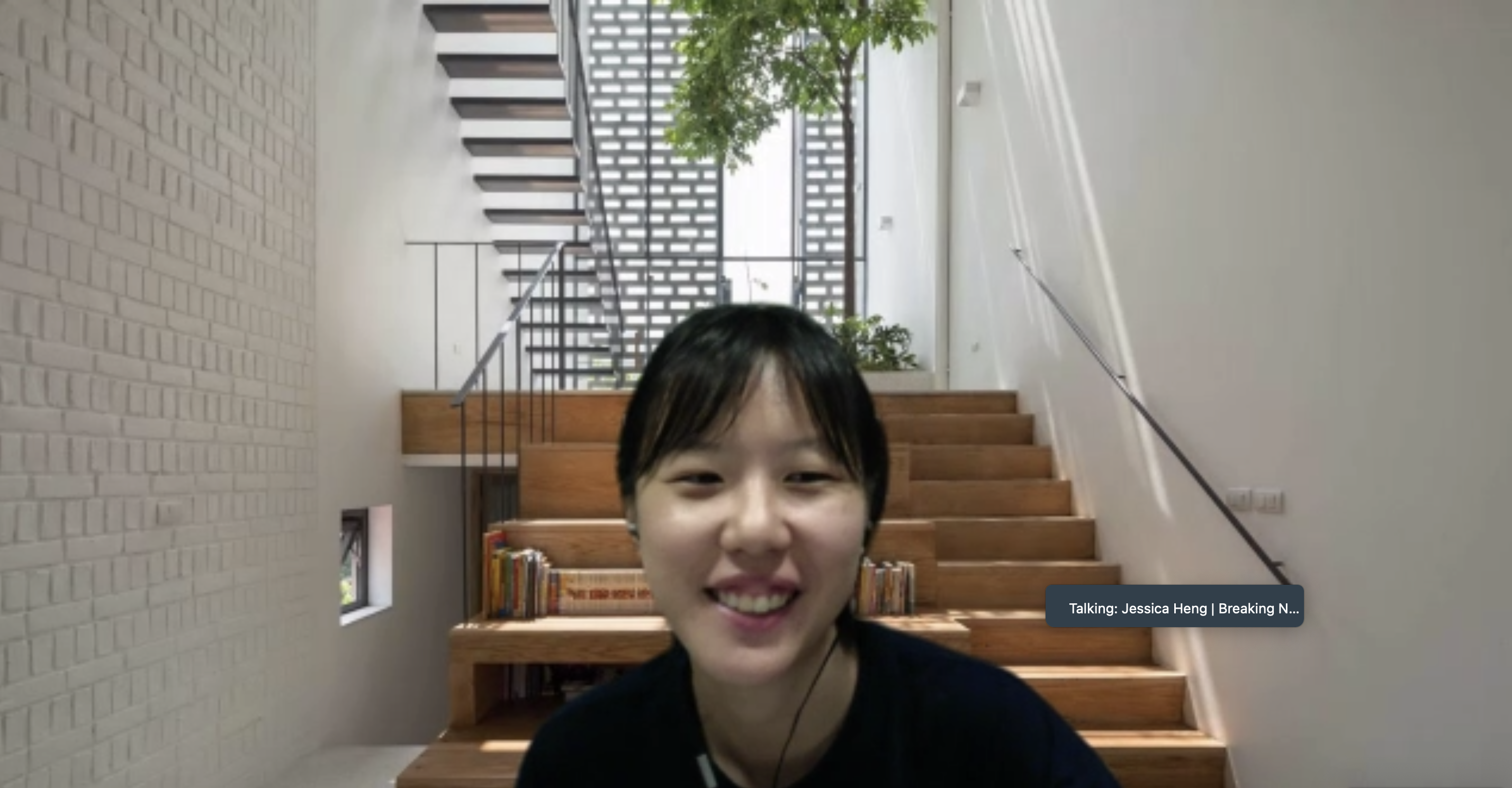
Trishtan: This question is always a tricky one for me. I feel like I never get used to answering it, as answering it truthfully would require me to reveal that I have done stuff in the past that was similar to what is portrayed. But yeah, I think the audience can see it’s a highly personal one as the world and the activities in the film are so specific. The only way for one to have such a deep insight into these kinds of internet relationships is to really be there.
I belong to a very highly sexualised generation on the Internet, where a lot of sexual activities are very accessible, instant, and can happen without anybody else knowing. At the same time, I also come from a very small town in the Philippines. When you’re young, small towns tend to feel like prison, and the teenagers from these towns always have a longing for a life outside it. When I was younger, the promise of living in a big city was a very romantic concept. Therefore, these two things, my experience as a growing teenager on the internet, and my dreams for something bigger, were fulfilled by talking to strangers online.
This activity was such a big part for me growing up that it’s really hard to talk about my teenage years. It felt like a very big secret that I have to skip. I think I made i get so sad sometimes because I felt ready to tell my own version of the typical teenage experience, except that mine happened under very dark circumstances.
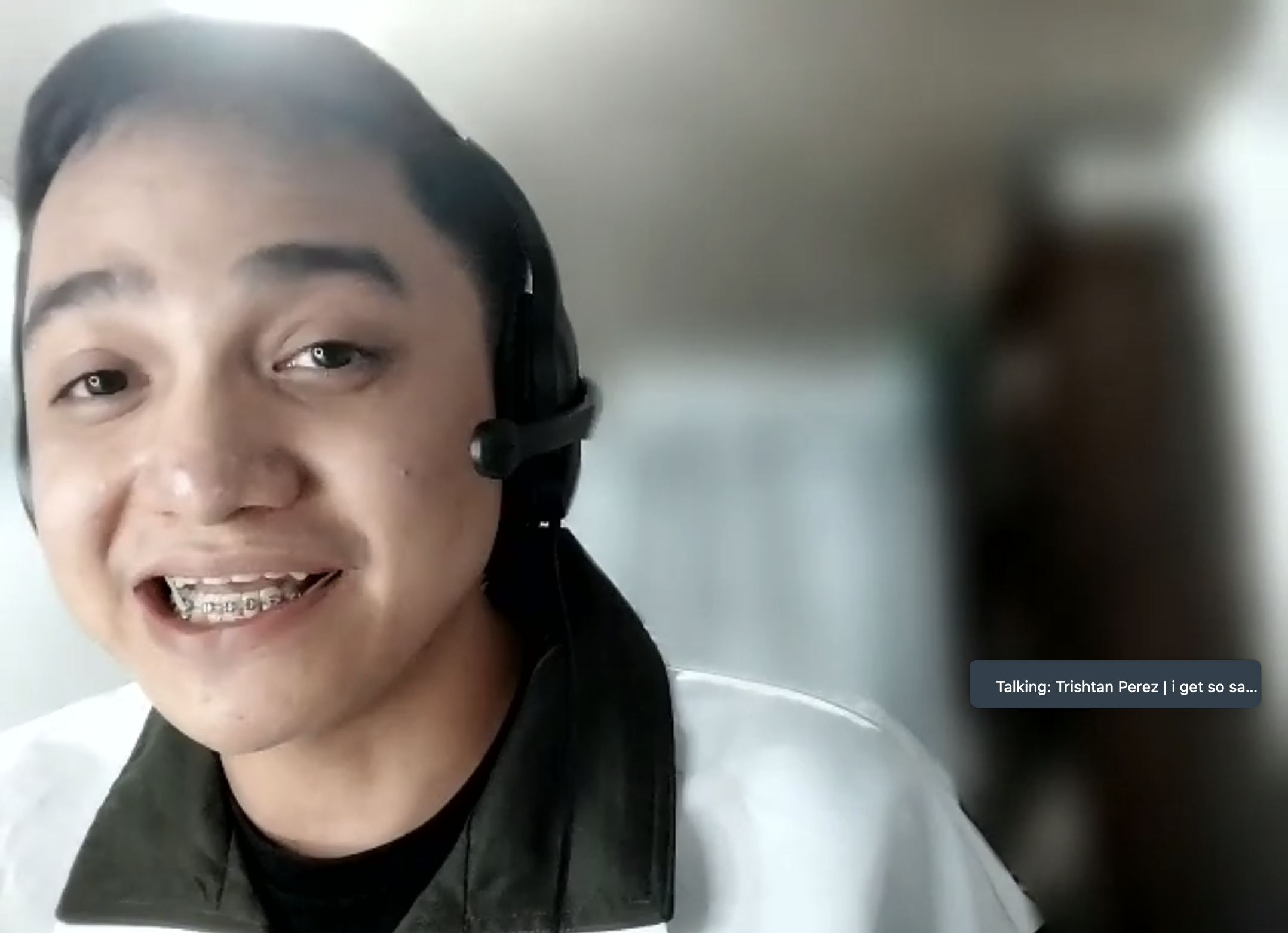
Puiyee: When the three of you applied for the Incubator, how did you all hope that it could help with your scripts?
Trishtan: Before I submitted my script for the open call, I had been working on it for two years already, as it was initially supposed to be the film for my school thesis before I decided to change it. I kept trying to revisit it, but each time I felt stuck. I didn’t know where else it could go, or what I could continue exploring with it. I was very insecure during the Incubator because I felt my story was really plain, and I also felt embarrassed about doing a coming-of-age story while the other participants were leaning towards more artistic sensibilities. I therefore think I entered the Incubator with the goal to find something unique and original in my story.
Jessica: I was definitely looking for a sounding board, because once you leave school, it’s not so easy to gain access to consistent feedback. My main practice mostly focuses on documentary, and Breaking News was actually my first narrative, so I was quite green in this field. I felt like I needed help with the structure and characters in a narrative film. I was also writing this in isolation, and while there are benefits, it’s also like an echo chamber, where you are prone to overthinking all the time. Having it come out, and knowing that it will be in the company of other people felt quite reassuring.
Reza: I really wanted to get more perspectives on my film from audiences outside of Indonesia, and make it seem more universal and relatable.
Puiyee: When we chatted earlier with the three of you, we also spoke about the changes which your scripts underwent during the Incubator, as well as the things that you all chose to keep. Maybe we can talk more about some of these differences and changes to the initial scripts, and what you all discovered could work, or didn’t work.
Jessica, you mentioned that the beginning of your script underwent the most change. Could you share with us your thought process, from the choice to include the initial scene, to the decision to change it after the consultations with your mentor?
Jessica: When you first start writing, it is common to be afraid that audiences will not pick up on what you know, or what is in your head, and which you have to express in a condensed manner onscreen. One of the first things that my mentor, Yosep Anggi Noen, commented on, was that my initial opening, set at a playground, was too much of a cliché. I learnt from this that it was important not to assume that your audience is dumb. It was assuring to know that even without these [clichéd] elements, the film could still put forth how Eliza, my protagonist, was feeling. That was when I realised that I did not have to be so afraid of my audience not picking up what I wanted them to pick up.
One piece of advice I was also given was that it is better to start with the internal than the external, just so that you can get into a character’s headspace quicker, and maintain that momentum. I have a phrase written down on the draft saying, “Cut the front dead weight”, and I found that very helpful. If I’m doing this on my own, I would have deliberated too much, or too little. Having someone give you honest criticism is an effective way to put your film or script on the chopping board, which is what we need sometimes.
Puiyee: I remember the mentors asking whether you would consider a documentary-style treatment for the film. Was this something you also had in mind before you started shooting, or did it occur to you while you were working on the script?
Jessica: Although the way we shot it doesn’t come across as a documentary, the process was very much so. For example, I spent a lot of time conversing with the actress who played Eliza, finding out about her life, what being 17 or 18 was like for her, and what her friendships and relationships are like. The hair cutting sequence in the film between the mother and daughter was also workshopped – a lot of that came from the actress’ own experiences with her own daughter.
This translated to my focus on representing the medical personnel and procedures accurately too. I spent time talking to counsellors, as well as doctors who perform abortions, to get a sense of how the questions they used could be conveyed similarly onscreen with the same tone and language.
Puiyee: While Eliza is the main character, her family plays a very important supporting role in your film too. Some have commented that the mother feels like a caricature of sorts. Could you take us through how the mother character was like in your script? Did you eventually change her character after having done the casting and speaking to the actress who portrayed her, so as to incorporate more things from the actress’ own life and experiences into your film?
Jessica: I was told that I needed to give the mother character more depth. And just like what Trishtan mentioned earlier, it’s always difficult to delve into your own truths and experiences, and I also didn’t want this to become an exercise in indulgence, where I simply transplanted my own childhood into the film.
Much of who you see onscreen as Eliza’s mother was really brought about by Serene, the actress who played her. We shortlisted three actresses for the role and made them do different pairings during the read aloud. This was quite interesting as the chemistry was different each time, and it allowed us to ‘feel’ for who or how the character should be. Any initial issues that I had with the character was solved in a different way here – not just through constant writing and rewriting, but through a lot of discussion and collaboration too.
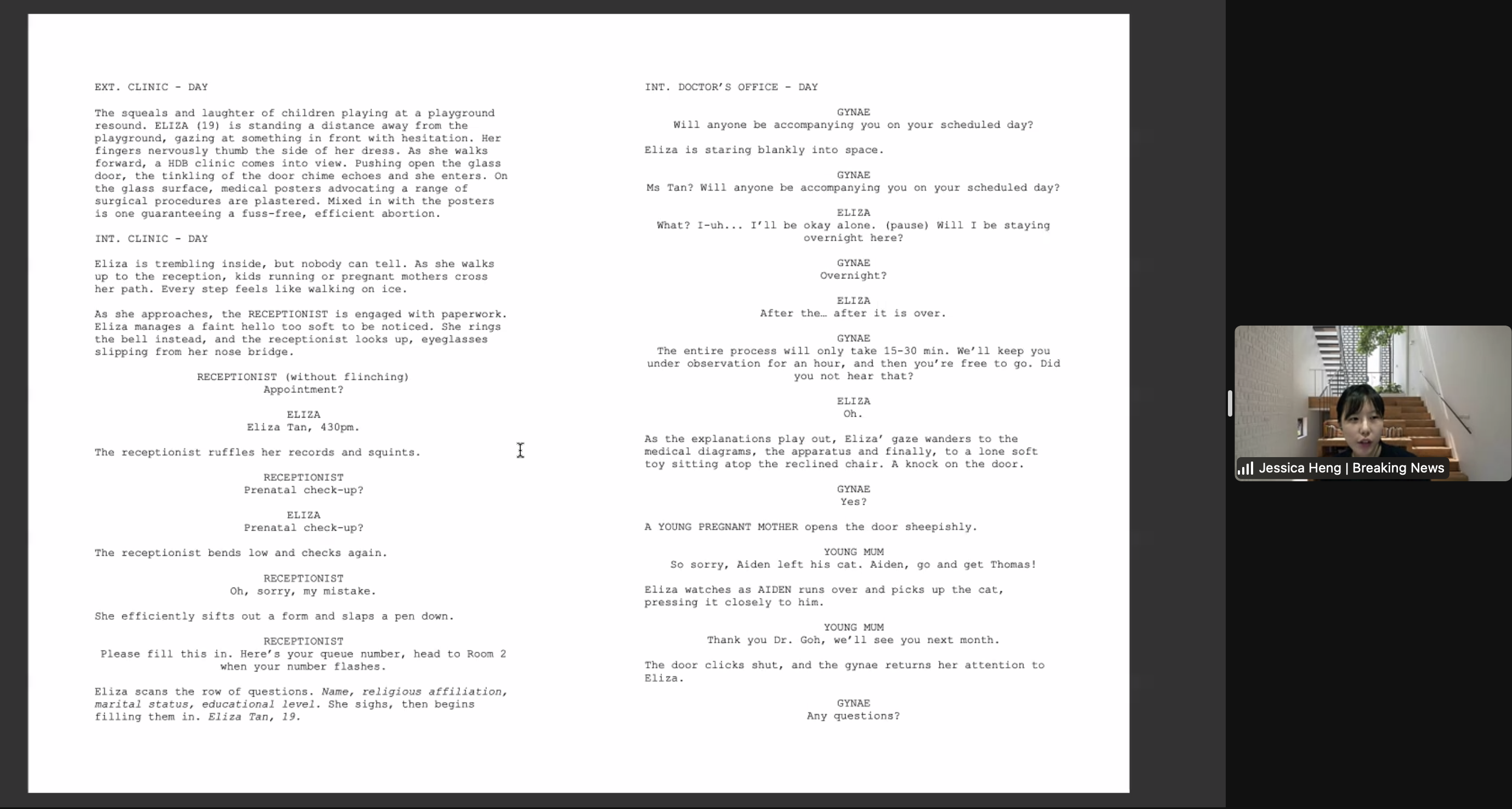
Puiyee: Reza, during the Incubator, you came up with several drafts of your script. Could you share more with us on your thought process when you were doing so, and how you finally settled on the final version?
Reza: When I first started out, I was only concerned about portraying the real-life issues the people were facing, as I mentioned earlier. However, during the Incubator, this changed as we started discussing all of my motivations for making this film, along with the kind of film that I really want to make. I realised that I did not infuse the characters with sufficient realism.
If you compare the structure of the first draft with the final draft, you can see that they are vastly different. The ending of the first draft was also a bit more hopeful and ambiguous, with both characters pushing each other to try to get jobs at the airport as the film closes. This changes in the final draft, and eventually in the film, where the characters are more aware of their place in the system, and the conflicts that they now notice within it. This put my message across better.
Puiyee: I remember one of the mentors commented that the emotional aspect of your film is very important. We see the couple share tender moments, and we also see them feeling hopeless at the end as they rode off on the motorbike. Was this emotional aspect something that you have always wanted to communicate through West Love?
Reza: I’m largely concerned about these big systems which we cannot fight nor change, and I want to explore in my films how their victims eventually come to an acceptance of them, or move on. This emotional aspect had to come through in my film, and I did that partly by speaking to the actors, who come from that very region, and asking them what they thought about their circumstances.
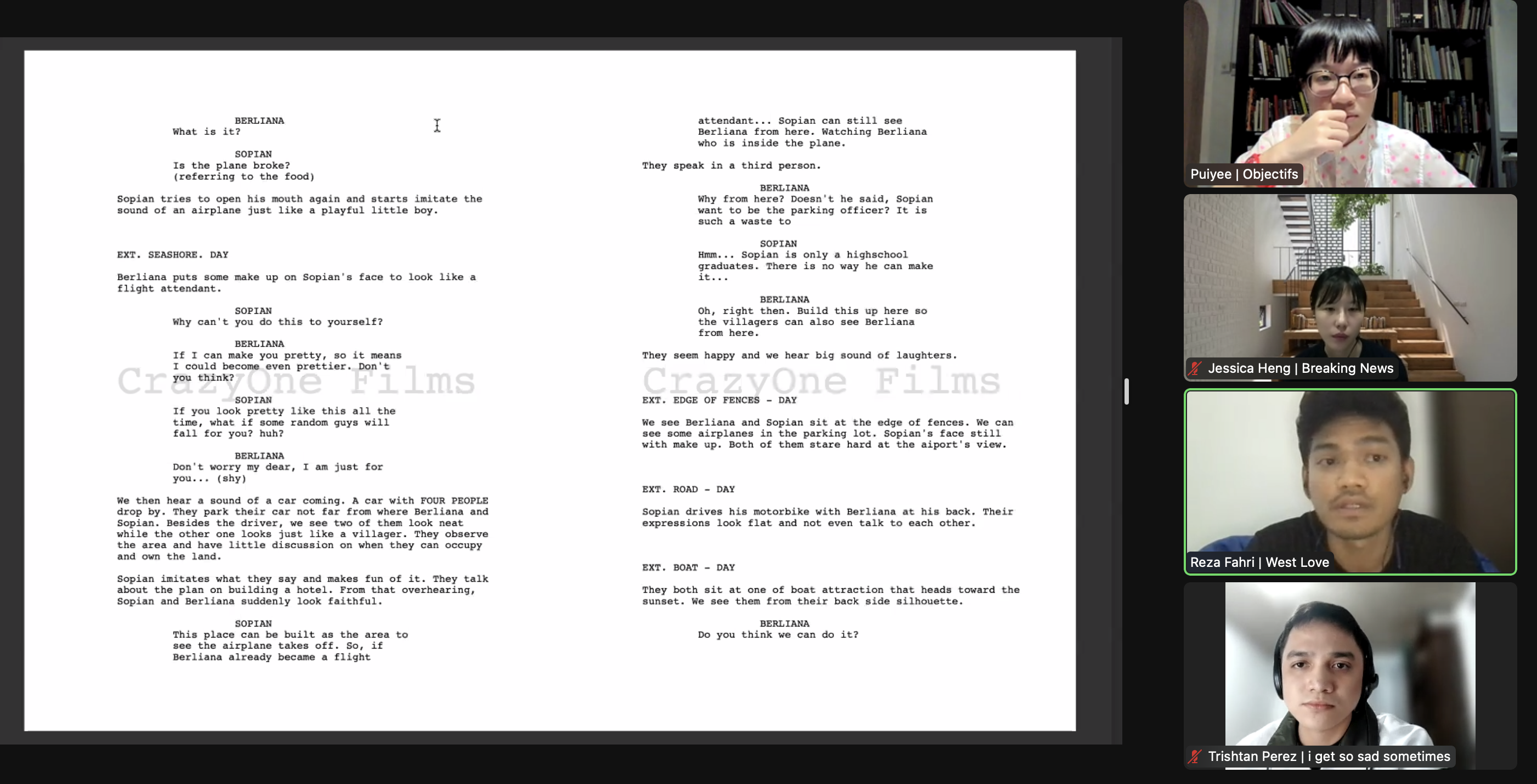
Puiyee: Trishtan, you mentioned that you were open to challenging or changing your own script from the get-go when you joined the Incubator. I also remember the mentors asking you how you thought would be the best way to balance the double lives of your main character. Could you also bring us through the thought process you went through as you modified your script throughout the Incubator till its filming stage?
Trishtan: By trying to resolve that personal problem of mine, as I mentioned earlier, I remember receiving the advice that longing in a small town in the Philippines could be different from longing in a small town in the US or Thailand, for example. I was challenged to give more life to the setting of my story. Before the Incubator, the idea didn’t cross my mind that longing for a person could be akin to longing for a place. I learnt that for longing to feel like a real experience in a film, the world in it should have a very specific texture to it. My mentors challenged me to provide this specificity, and to give more personality to the side characters too in order to make the audience just as interested in the world portrayed outside of the online one.
If you recall, my story was set in a town near Manila. I wasn’t able to shoot it in my own province as it would be very expensive. This then caused a lot of internal conflict because I was then trying very hard to make it work by projecting memories of my own hometown and its people on an imaginary place.
I eventually did a complete overhaul of the plot, retaining only a few sequences from the original draft. I introduced a lot of new scenes in order to give the necessary details or texture to the script, even setting the scenes in many different places, e.g. a school, a park, at a street vendor. I was willing to go all in to craft a unique story even if it meant letting go of many other things. I remember how surprised everyone was with the drastic changes, having retained only 20% of the original draft!
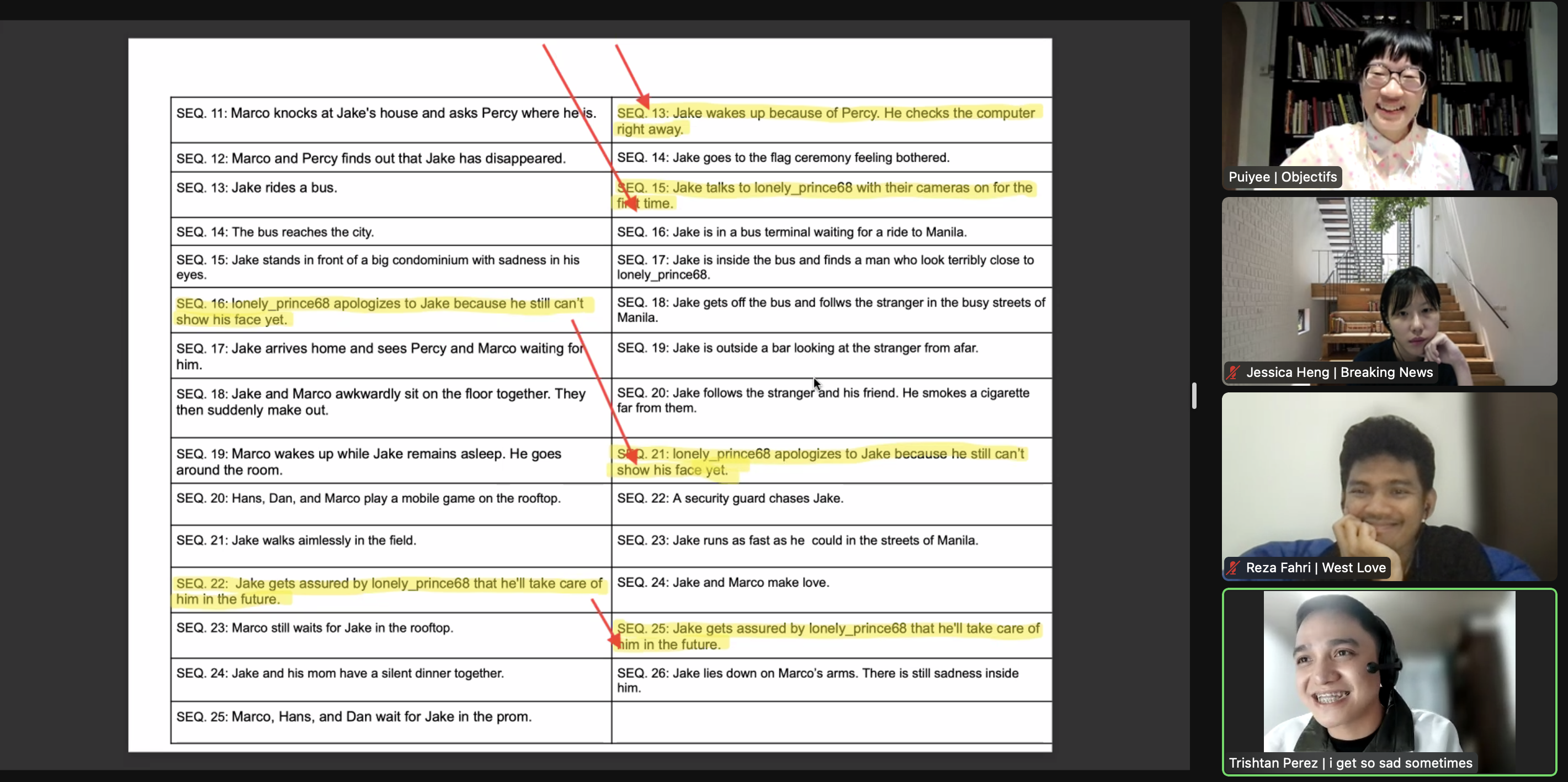
Trishtan: Honestly, it was a very challenging process, but I very much appreciated it too. My story also continued brewing after the Incubator, and I realised after the programme that even my new script wasn’t a definitive one. And this is exactly it – it shouldn’t be definitive. It was also after the programme, when I was sitting with this new script, that I realised what it was missing was some of the elements from the original one, which I replaced.
I really have Objectifs to thank for providing me with a safe space to go wild with my revisions, and the process of just truly getting lost with my script in order to discover where I want my story to go.
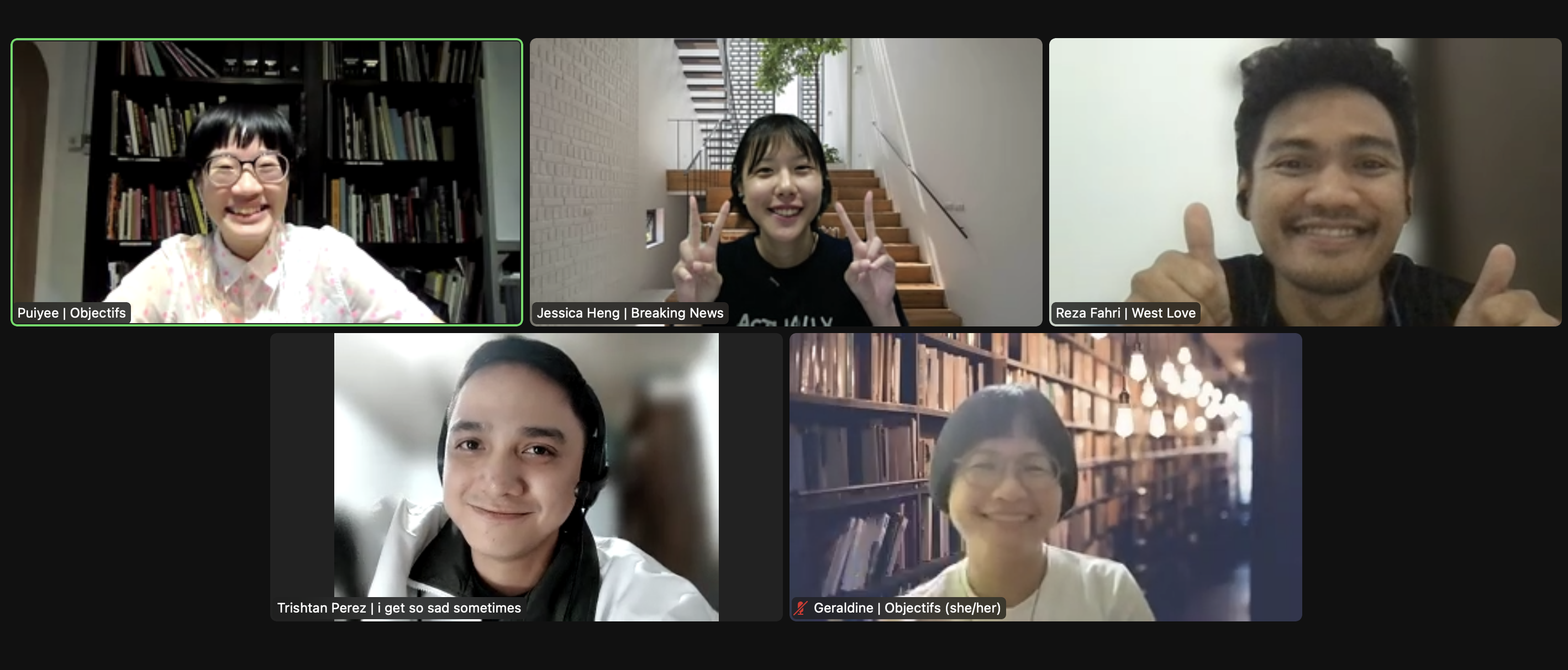
Recap by Geraldine Cheng, Jun 2023.
You can also read our past Film Club recaps here.

